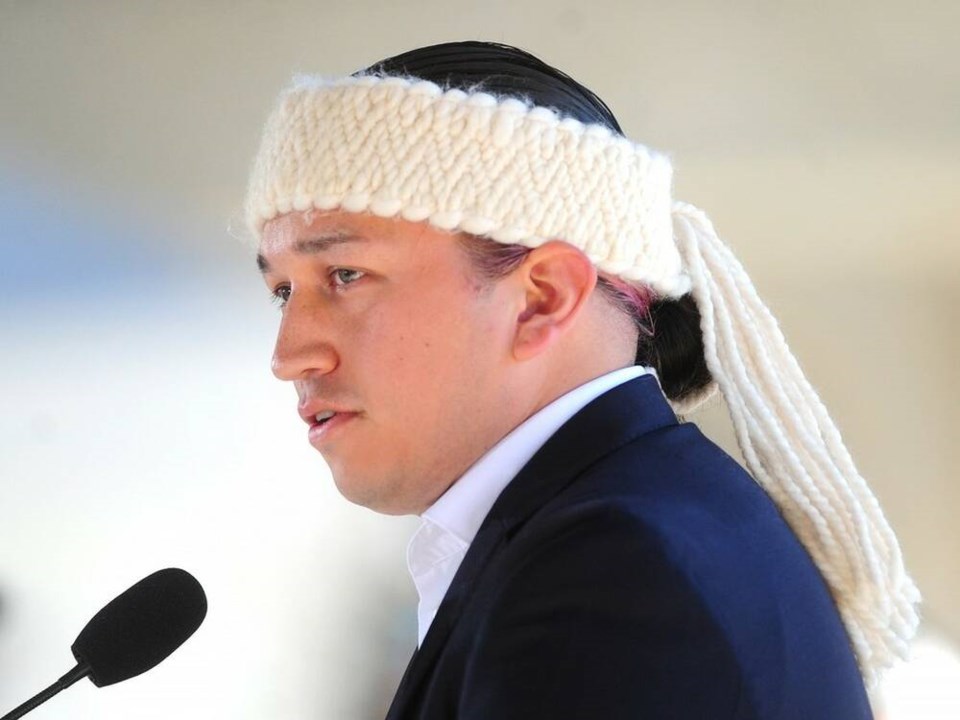A new rule that requires the provincial government to consult Indigenous governments on new B.C. laws is facing early challenges as First Nations leaders say they don’t have capacity to provide meaningful feedback.
B.C. Green MLA Adam Olsen said that could be the reason the first session under Premier David Eby is a “legislative desert,” leaving MLAs to debate minor housekeeping bills and producing the rare spectacle of NDP caucus members debating their own bills to kill time as they wait for more substantive legislation.
Indigenous leaders say they’re happy B.C.’s Declaration on the Rights of Indigenous Peoples Act requires the government to consult with them on legislation but are frustrated they’re expected to do it for free, stretching already thin resources.
Olsen, who has been critical of the government’s thin legislative session, said the government should have foreseen this problem and provided the required resources to First Nations.
This is the first legislative session where new laws are sent out for First Nations consultation as required under the act.
“We really don’t have the capacity or support from the province to engage in a meaningful way on legislation,” said Métis Nation B.C. CEO Colette Trudeau, who said the turnaround requested to provide feedback on new laws is sometimes a matter of days.
Khelsilem, chairperson of the Squamish Nation, is worried the pressure to comment on provincial legislation within a tight deadline could take away time and energy from other important projects.
“We’re dealing with thousands of issues every day, every week, every month, every year. So in addition to all of our regular sort of operations, as well as our special projects internal to our communities, there’s now this added layer … to involve ourselves in or provide comment or collaborate on legislation.”
If Squamish Nation — which has the second-largest population among B.C. First Nations and is one of the wealthiest — is having trouble finding the resources and expertise to properly consult, Khelsilem worries about the effect on smaller First Nations.
Indigenous Relations Minister Murray Rankin said the province is working to address concerns from Indigenous communities that they lack the resources to meaningfully participate in consultation.
“We obviously want to do better and work with them to ensure they have the resources to do this important work,” Rankin said.
When the government is working on new laws, it sends the proposed bill to groups including the First Nations Leadership Council — which includes the Union of B.C. Indian Chiefs, the B.C. Assembly of First Nations and First Nations Summit — and the Métis Nation B.C., and to individual First Nations if the legislation affects them directly.
Rankin said the government tries to do as much consultation as possible but it can’t send each piece of legislation to the more than 200 First Nations in B.C.
Eby has been on the defensive after both opposition parties said his government botched the spring legislative session by failing to put forward substantive bills for debate.
The premier’s office insists the NDP is putting forward legislation, with eight bills introduced in the first 10 days of the session. But the Opposition says many of those are bare-bones housekeeping bills.
Olsen said if the government insists things are business as usual, “that is their own La La Land.”
“We had to shut down [debate] early because we were standing in the middle of a legislative desert and no oasis was near,” he said.
Last week, the B.C. Greens and B.C. Liberals held a rare joint news conference to attack the government for “mismanagement” of the house and for wasting MLA’s time with a thin legislative agenda.
The first three weeks of the legislative session have seen the bizarre spectacle of NDP caucus members filibustering their own bill to run out the clock. B.C. Liberal house leader Todd Stone and Olsen said that wastes time and prevents MLAs from debating issues important to British Columbians like the health-care crisis or public safety.


